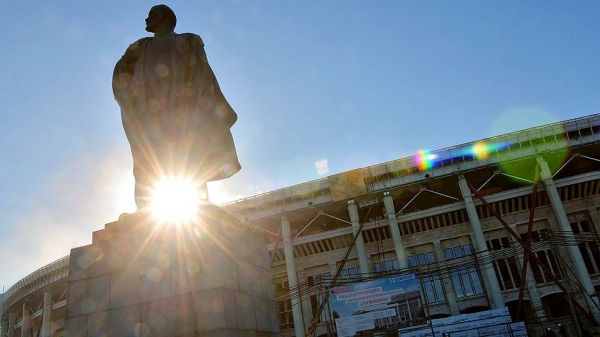Domestic cryptocurrency, search engine and Twitter — what’s wrong with the projects of technological import substitution
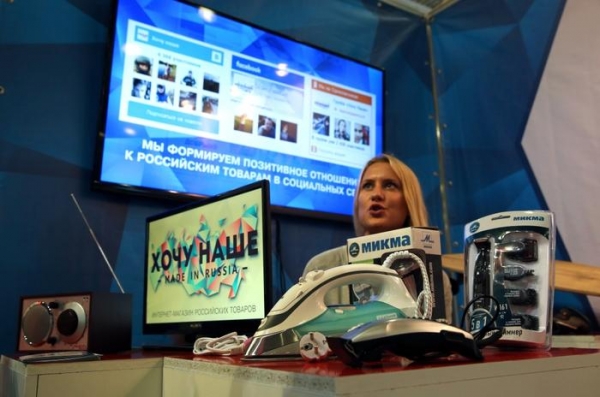
Rosfinmonitoring took the initiative of creating a national cryptocurrency and subsequent ban of all its international counterparts. World-renowned principles of Bitcoin technology in a new project office was turned inside out: instead of an anonymous, decentralized network Russian version of cryptocurrency involves the licensing of missionerov, the regulation of swaps and full deanonimizatsiyu users. In seeking to regulate the emerging market, squeezing him with global players and new developments, authorities can completely stop the development of high-tech segment of the cryptocurrency in Russia. “New” recalls other attempts at high-tech import substitution.
Search engine “Sputnik”
State search engine “Sputnik”, launched 2 years ago Rostelecom structures, estimated to cost the company $20 million investment. In addition to the standard functions of a search engine “Sputnik” filters the content according to the degree of obscenity and aggregates useful links in the field of public services and socially important portals. At the start, the project enjoyed some popularity due to the wide discussion in the press, but soon failed miserably — after 100 days of his viewership dropped by 90%. Traffic continued to fall further in August 2015 on the website of public procurement, there was even a bid to increase the audience of users of the products” placed on the “Companion”. Analytical company could not provide data about site traffic because his audience was so small, that were not included in their sample (less than 1% of Russian Internet users, according to some estimates — up to 100 thousand users per month).
The key challenge that investors have set for the project was to achieve 1 million unique users per month by the end of 2015. It seems that the only hope of a search engine ever see such figures — his violent introduction of products in the life of public bodies. Recently, Sputnik has announced the launch of a browser with a built-in cryptographic encryption system based on local algorithms. It is assumed that civil servants and employees of budget organizations will use the new browser instead of foreign analogues with closed modules. Another example — selection criteria of counters, site traffic, recently prepared by the Ministry of economic development. Counter, developed into a Satellite, it is planned to make the recommended for the official websites of government agencies (the formal motive is the same — security).
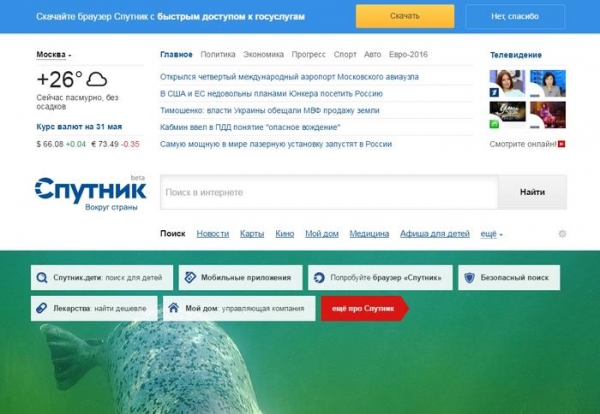
<sup>a Screenshot of the main page of a search engine right now</sup>
YotaPhone
Yota Devices, a Russian smartphone with two screens appeared on the market in 2011, and the first model was released in 2013. According to the CEO of the company Vladislav Martynov, business investment at the end of 2014 amounted to $50 million Through 1-1,5 years project was to reach self-sufficiency. The company, however, is still not profitable. On the contrary, the loss of producer soaring: net loss for 2014 was $15.8 million for the first 9 months of 2015 — already $30.7 million since the launch of sales in 2013, until the end of 2015 Yota Devices managed to implement 96 thousand smartphones.
At the end of December 2014, during the peak of the devaluation of the ruble, the price of the next-generation smartphone YotaPhone 2 increased by 20% — the reason was the presence in the product of foreign components. Then the price went up to 40 thousand rubles for the minimum configuration, while today the device costs about 20 thousand — at a cost of $420 (about 28 thousand rubles at the current exchange rate). Funding problems have forced the company to look for foreign investors, and today 30% of Yota Devices belong to the Hong Kong holding company, Rex Global (the originally planned sale of 70%).
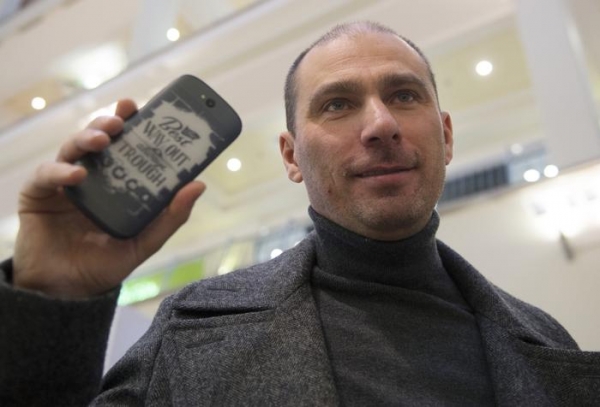
<sup>Creator Vlad Martynov YotaPhone. Photo: RIA Novosti</sup>
Computers “Elbrus”
Manufactured at the Moscow center of SPARC technologies (MCST), a computer microprocessor Elbrus-4C at a much higher price far behind in performance from similar imported for a few years. It is not surprising that the market is once again limited to a few government customers willing to pay more for domestic development. The amount of contracts from the Ministry of industry and trade since 2011, amounted to several billion rubles, the servers at the “Elbrus” purchased subordinated to the Ministry of communications the FSUE research Institute “Voskhod” and the Pension Fund of Russia. It was reported that further developments can use military and government officials.
At the end of December 2015 “Izhevskiy Radiozavod” has released the first batch of personal computers “Elbrus-401” (about 80 pieces). The price of the computer amounted to 400 thousand rubles instead of the initially announced 200 thousand. Of domestic components in the device — the same Quad-core microprocessor. The “Elbrus” has its own operating system based on Linux kernel. As an ordinary consumer machine may not be interested, the company plans to work with legal entities.
Last spring in the media appeared the news of the creation of MCST of the first notebook — the device weighed 10 kg and was able to work on battery for 1 hour at a price of 150 thousand rubles. However, it turned out that all is not so simple: the “laptop” turned out to be wearable terminal NT-Elbrus” designed to work in extreme conditions and released in 2012. “His work is guaranteed, even if in 50-degree weather to sail up to the enemy under water and neutralize his shot this laptop on the head,” — wrote in 2014 in his blog, the employee of the MCST, Alexander Bragin.

<sup>a screenshot from the MCST website</sup>
Hybrid electric vehicle “E-mobility”
Dreams of the first Russian electric car collapsed in the spring of 2014, when the businessman Mikhail Prokhorov sold technology “E-mobility” state Institute of US for a symbolic sum of 1 Euro. Director for investments of ONEXIM (the group of companies owned 51% of shares of “e-AVTO” Valery Senko explained then that the important role in the decision to close the project was played by the weakening of the ruble — a great piece of equipment for the production of Russian car was planned to buy abroad. In this scenario, the experts estimated the potential cost of the “people’s” car more than 1 million roubles instead of planned earlier 350-450 thousand. According to Senko, the closing of the project on the development of “E-mobile” has already spent several hundred million euros. Partner ONEXIM the project was the Russian-Belarusian YAROVIT-motors”, engaged in production of trucks and in 2015 on the verge of bankruptcy.
The owners of the “e-CAR” was a possibility, as is the case with Yota Devices to sell the platform to Chinese investors, but gratuitous transfer of the project to the state seemed more noble decision. Latest beautiful gesture in the company’s history was the crossover “Yo-Crossback EV”, presented to Vladimir Zhirinovsky. Four years of work were not in vain — according to the testimony of journalists, the politician “glowed with happiness”.
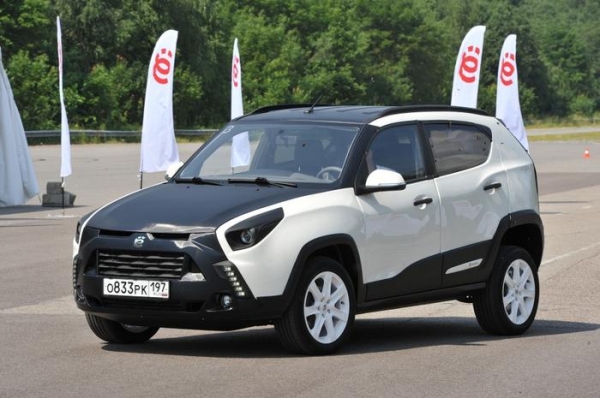
<sup>Presentation “E-mobile Prokhorov. Photo: RIA Novosti</sup>
“Russian Twitter” — Futubra
In 2012, the group Mail.ru loudly announced the creation of the Russian analogue of Twitter — the microblogging service Futubra. In the development of the project involved a team of several dozen developers, for six months in Futubra has registered about 80 thousand people. Thus clear explanation, why do we need another Twitter, and not followed. Existed until December 2012, the service was closed — “due to the lack of sustainable audience growth”.

<sup>Home page now looks like this Future</sup>
It should be noted that high-quality and popular products, IT-related and high technology in Russia still do. An example is the ecosystem servicesof”Yandex”, the development company ABBYY or the messenger app Telegram, founded by Pavel Durov. However, they are not labelled as “domestic counterparts” Western development for the domestic market and oriented to global competition — and therefore viable. Domestic cryptocurrency, most likely, will go after “E-Mobil”.

